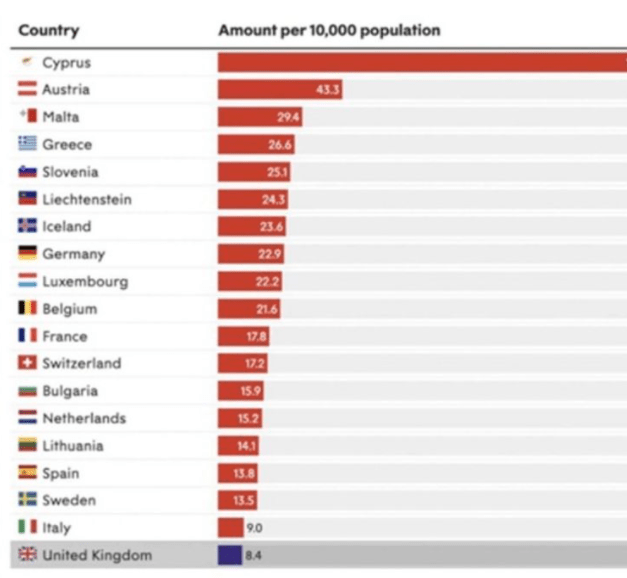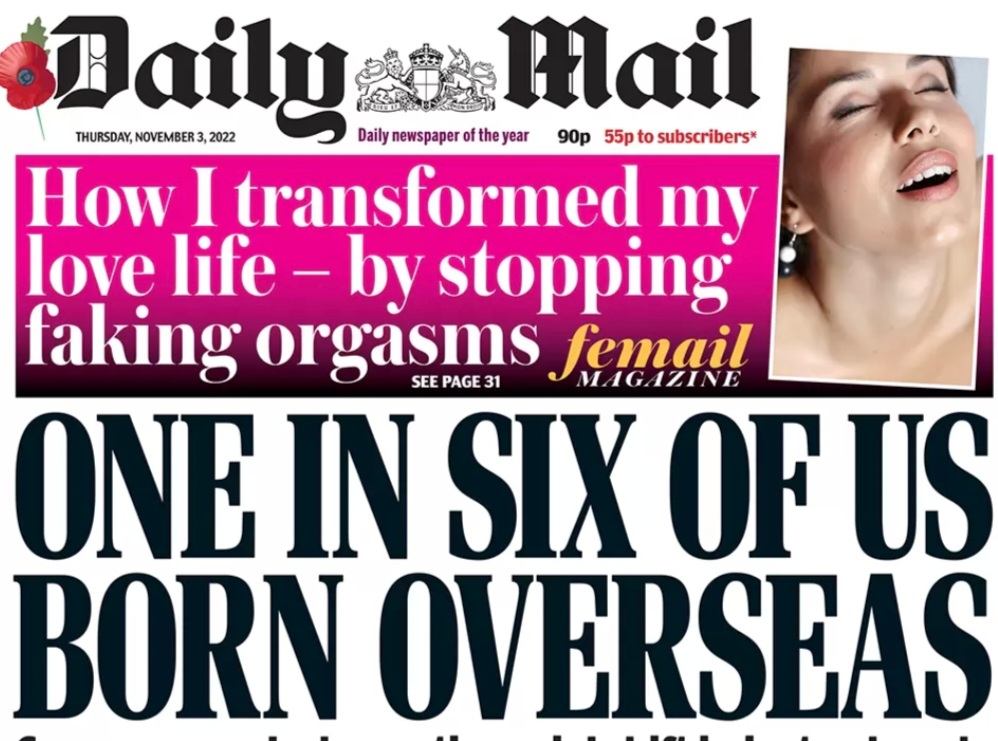Whether Rishi Sunak is forced into an early election, or whether he will hang on until 2024, the Tories seem to be gearing up to play the race card as a key element in their election strategy. Every part of the economic calamity facing the country and working-class households is a product of the last twelve years of Tory government and an economic system rigged in the interests of the rich. So on the question of migration, the Tories hope they are onto a winner.
The language used by Home Secretary Suella Braverman – likening migrants to an “invasion” – is designed to inflame tensions. It was as a result of such language from Tory politicians and the scurrilous rags of the mainstream media that we saw the first terrorist attack last week on a migrant processing centre in Kent. Braverman at first tried to deny that that firebomb attack was a terrorist incident, but according to police statements it is now clear that the attacker was inspired, like the murder of Labour MP Jo Cox in 2016, by ultra-right wing and anti-immigrant propaganda.

The mainstream media’s demonization of asylum-seekers is not new, and nor is it unique to the UK. With the rise of the Nazis in Germany and the increase in Jewish refugees in the 1930s, the same newspapers that complain about migrants today were complaining then about Jewish refugees. In the USA today, rightwing Republican politicians and media are beating the same drum, about an “invasion” of migrants from Central and South America.
Public services are on their knees and face more cuts
There is a danger that the right-wing media and the Tories will find some support for their ideas if the labour movement does not counter their poison. British workers are facing the biggest cuts in their living standards for generations. They are going to be forced to make even more sacrifices when the mini-budget of Jeremy Hunt is revealed this month.
Economic forecasts have the UK moving into the longest recession since the 1930s. Yet the public services on which workers depend – the NHS, local authorities and education services – are already on their knees and public sector workers are drastically underpaid, understaffed and demoralised.
For the overwhelming majority of working people, therefore, daily life is more precarious and insecure than ever before. In addition, there is a widespread perception that on all the important questions, ordinary people are not in control of their own lives and decisions are taken above their heads and without any consultation. When a ‘migrant crisis’ is added to his mix, therefore, it is easy for the press to play on the numbers of those arising and to make the simplistic suggestion that the UK is ‘too full’ and that migrants are to blame for social problems.
The Tory policy of eviction to Rwanda makes no sense economically. As we pointed out in a previous article, even former minister, Andrew Mitchell, pointed out in a BBC interview that “the costs are eye-watering”, pointing out that “it would actually be cheaper to put each asylum seeker in the Ritz hotel in London.” But Braverman and Sunak know this: the policy is in place only because it keeps the migrant issue on the boil and controversial. It is grandstanding; no more, no less.

The headline in the Daily Mail – that “one in six” in the UK were born elsewhere – is designed to play on the genuine fears of workers about their living standards and public services, stoking up a fear of being ‘swamped’. They too, are keeping a pot boiling and evoking a panic over a ‘crisis’ that is entirely artificial. What the Mail will not tell you is that in an increasingly cosmopolitan world, where international travel and migration is a normal pattern of modern life, what is true of the UK is also true of most of the larger capitalist countries.
The most difficult decision of a person’s life
Trying to move from one country to another, in a situation of great distress and danger, is probably the most difficult decision anyone will take in their lifetime. There is only one reason why migrants risk their lives in a dangerous crossing of the Channel on a rubber dinghy. It is a mark of their desperation and the paucity of other ‘legitimate’ systems of seeking asylum.
Clare Moseley, of the charity Care4Calais, complained that a government policy allegedly to stop ‘people smuggling’ involved “closing down all but a handful of legal and safe routes for refugees”, with the inevitable result of more Channel crossings. “In the same way prohibition fuelled organised crime”, she said, “our government is fuelling people smugglers by cutting safe and legal routes”. (Financial Times, November 2). As long as there are hardly any official means of applying, those seeking asylum will inevitably take the risk of using unofficial routes.
Recent attention has been put on Albanian refugees, allegedly linked to criminal gangs, and we can already see the outline of Daily Mail headlines and the Tory election strategy in Braverman’s charge in the House of Commons last week that Labour “would let in Albanian criminal gangs”. Yet, in fact, the big majority of asylum-seekers are those attempting to escape war, oppression and economic dislocation, human-made catastrophes for many of which USA and UK bear the main responsibility. The government’s own figures show that in the last full year for which data is available, 2021, 43% of applicants were from Middle Eastern countries, 28% from African countries and 18% were of Asian origin. Only 12% were from Europe.
We should also note that the numbers of desperate people seeking asylum in the UK is by no means the largest in Europe. According to the UNHCR, in the year ending September 2021, Germany had 127,730 asylum applicants, followed by France, with 96,510. Compared to other European countries, the UK received the fourth largest number of applicants, but measured per head of population, was eighteenth on the list.

Windrush migrants treated appallingly by the Home Office
The problem with asylum seekers coming to the UK is the Home Office Immigration department, which is the focus of so many problems. Not least is the fact that there appears to be an inbuilt racism baked into its systems: something we know from the appalling treatment of the Windrush migrants from the Caribbean.
Over the years, many elderly migrants who had spent a lifetime living and working in the UK were nevertheless expelled by Home Office Immigration. According to the Guardian (June 22, 2022) “Only one in four applicants to the Windrush compensation scheme have received payments four years after the government promised redress for those wrongly classified by the Home Office as illegal immigrants”.
We can only imagine with what glee some Home Office officials implemented Theresa May’s policy of “hostile environment” towards so-called ‘illegal’ migrants (a term, incidentally, not recognised by UNHCR).
On the other hand, it is hard to tell sometimes, where Home Office xenophobia ends, and outright incompetence begins. Even when the British government was lauding the heroism of Ukraine in the face of the Russian invasion earlier this year, and promising to ‘welcome’ Ukrainian refugees, the Home Office failed utterly to provide reliable and accessible channels for asylum applications.
Those asylum-seekers in the news this week, in what can only be described as a refugee camp in Manston in Kent, have not had their applications processed because of the inefficiencies of the Home Office. It is a class issue: while these poor, desperate families are kept in appallingly overcrowded conditions, the rich and super-rich, no matter how dubious the source of their money, are welcomed with open arms. So much the better, if, like Russian oligarchs, they can give money to the Tory Party.
Government failing to process asylum applications
For ordinary asylum seekers, the bureaucracy they face is much like talking to a brick wall. In fact, according to government figures, in the year up to June only 15,684, were offered some form of asylum, but around 120,000 applications cases are awaiting processing. The government has no programme to house them, look after them or process their applications. It was even suggested that Braverman, as Home Secretary, blocked the hiring of hotels and other accommodation that would have relieved the overcrowding at the Manston site.

In between the inefficiencies, the xenophobes of the Home Office and Tory dog whistles, there is also the profiteering. As with everything else this government does, the ‘services’ it provides are minimal because they are merely the vehicles for lucrative contracts to private companies. The three big companies benefitting from outsourcing accommodation for asylum-seekers have seen their profits soaring.
The three, Clearsprings Ready Homes, Mears Ltd, and, as always, Serco, have seen their total profits doubling to over £110m from these activities. Not that they provide caring or trained staff to look after asylum-seekers and their families. According to the Guardian (November 4), some of the contract workers were sacked for trying to sell drugs to inmates of the Manston camp.
A morality based on solidarity and mutual support
How should the labour movement respond? We need to state firmly and clearly that the traditions of the labour movement are based on solidarity and mutual support and our morality stands in complete contrast to the racism and xenophobia of the Tories. We do not turn our backs on workers and their families seeking a safe haven from war, oppression and economic devastation.
The worsening climate crisis will inevitably lead to wars and social upheavals of all kinds in the coming decades and one feature of those will be larger population shifts. The workers’ movement needs an approach and a policy that deals with such issues on the terms of its own standards and morality.
The Labour Party in particular cannot allow itself to be duped into playing the ‘numbers game’, where it tries to compete with the Tories on immigrant numbers or on who can put in place the most effective barriers. The central question to address on the issue migration is not how quickly the Home Office processes asylum claims – although that is an issue – but how Labour tackles the crisis in living standards and the increasing insecurities of workers.
Where there is a sufficiency of good, well-paid jobs; where there is housing that is affordable and readily available; where there are education and health services that are fit for purpose, those conditions would completely cut the ground away from the racists and xenophobes.
Even without the added issue of a migration ‘crisis’, it is the responsibility of the Labour Party to offer policies that defend and enhance the living conditions of the mass of ordinary workers. Faced with the Tories using the issue to create divisions, it is all the more essential that Labour looks to socialist policies to provide for the interests of ordinary workers.
Labour must be committed to policies that provide a meaningful change to workers’ lives. Policies such as:
*A national minimum wage of £15 an hour
*A rent freeze
*A publicly-owned house-building corporation tasked with building a million homes a year
*A fully funded NHS with private contracts brought back in-house or revoked
*Reversal of all expenditure cuts for education and local authority services.
Socialist policies involving the nationalisation of the banks, finance houses and the big corporations, would allow for the planning of all the national resources of the country in a way that would benefit everyone and not a tiny minority of rich and super-rich. There is no need, in a country as wealthy as Britain, for any worker or their families to face insecurity, uncertainty and cuts in living standards.
The question of migration and asylum-seekers is not an isolated issue, separated from all others. It is linked to the wider questions of who runs society, and in whose interests it is run. That is what has to be at the centre of Labour’s policy.



